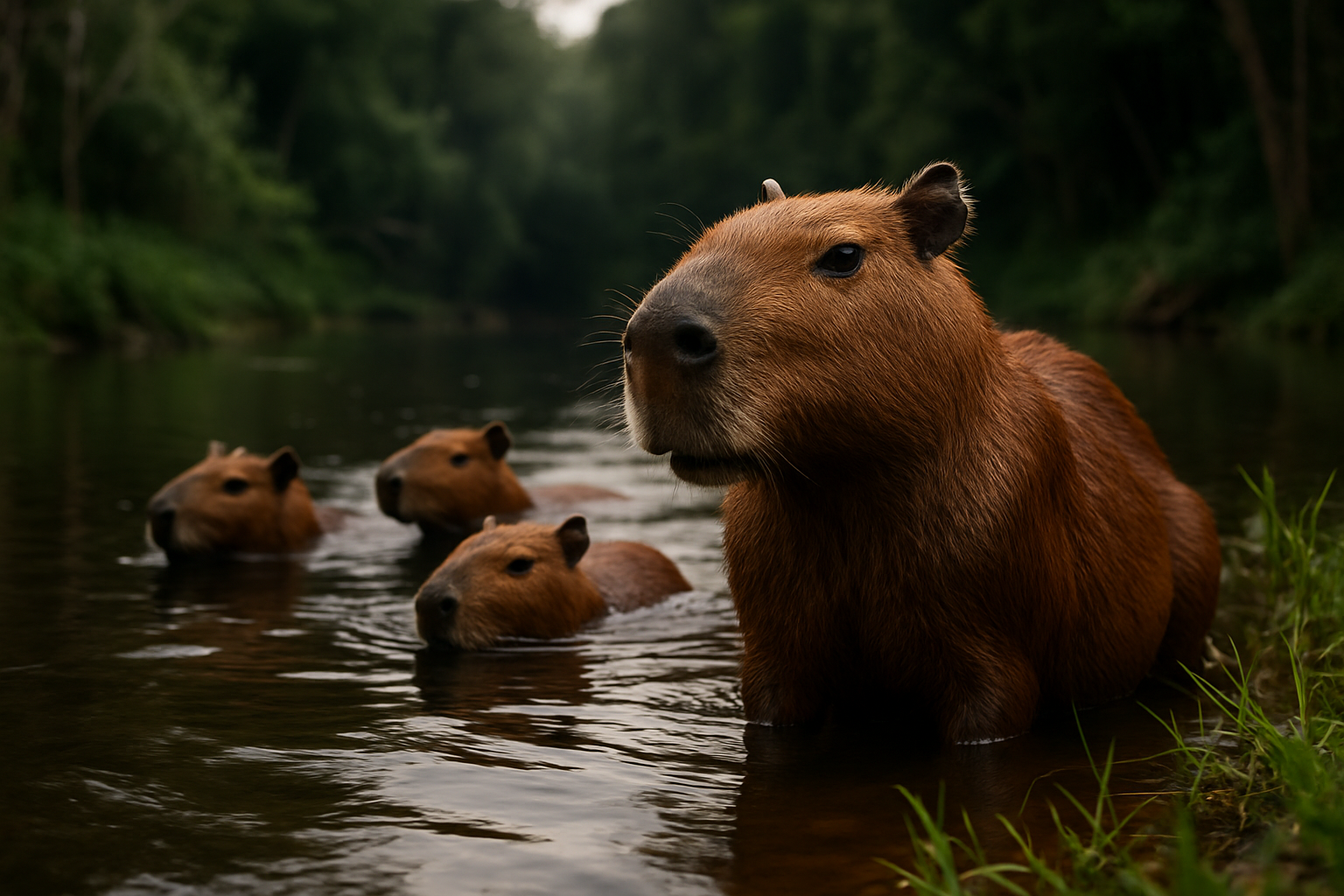The Surprising World of Capybara Companionship
Gentle giants of the rodent world, capybaras are gaining popularity as unconventional pets. These social, semi-aquatic creatures from South America offer a unique companionship experience that's capturing the hearts of animal enthusiasts worldwide. From their charming personalities to their specific care requirements, let's dive into the fascinating realm of capybara companionship and explore why these oversized guinea pig relatives are making waves in the pet community.

A Brief History of Capybaras as Companions
Capybaras have a long history of interaction with humans, dating back to indigenous South American cultures. These cultures viewed capybaras not only as a food source but also as integral parts of their ecosystem. However, the concept of keeping capybaras as pets is a relatively recent phenomenon, emerging in the late 20th century as exotic pet ownership became more mainstream.
Initially, capybaras were primarily kept in zoos and wildlife sanctuaries. Their friendly demeanor and ability to coexist peacefully with other species made them popular attractions. As more people encountered these amiable creatures, interest in keeping them as pets grew. Today, while still considered exotic, capybaras have found their way into the homes of dedicated enthusiasts who are willing to provide the specialized care these animals require.
Capybara Characteristics and Behavior
Understanding capybara behavior is crucial for potential owners. These animals are highly social, thriving in the company of their own kind and other species. In the wild, they live in large groups, and this social nature translates to their behavior in captivity. Capybaras are known for their gentle temperament and can form strong bonds with their human caretakers.
Physically, capybaras are the largest rodents in the world, weighing up to 150 pounds and measuring about 4 feet in length. They have barrel-shaped bodies, short heads with eyes set high, and webbed feet that make them excellent swimmers. Their semi-aquatic nature means they require access to water for swimming and bathing, which is essential for their physical and mental well-being.
Legal Considerations and Ethical Concerns
Before considering a capybara as a pet, it’s crucial to understand the legal landscape. Laws regarding capybara ownership vary widely by country, state, and even municipality. In many areas, keeping a capybara as a pet requires special permits or may be prohibited entirely. Prospective owners must thoroughly research local regulations and obtain necessary permissions.
Ethical considerations also play a significant role in capybara companionship. These animals have specific needs that can be challenging to meet in a domestic setting. Questions about the appropriateness of keeping wild animals as pets, the impact on capybara populations in their native habitats, and the ability to provide adequate care are all important factors to consider.
Capybara Care: A Comprehensive Approach
Caring for a capybara requires a significant commitment of time, resources, and energy. These animals have complex needs that must be met to ensure their health and happiness. A proper capybara habitat should include a large outdoor area with access to a pool or pond for swimming. The enclosure must be secure, as capybaras are skilled escape artists.
Diet is another crucial aspect of capybara care. In the wild, they are herbivores, grazing on grasses and aquatic plants. In captivity, their diet should consist of high-quality grass hay, fresh vegetables, and specially formulated rodent feed. Regular veterinary care from an exotic animal specialist is essential, as capybaras can be prone to certain health issues, including dental problems and parasites.
The Rewards of Capybara Companionship
Despite the challenges, many capybara owners find the experience incredibly rewarding. These animals are known for their affectionate nature and can form strong bonds with their human families. Their social behavior makes them engaging companions, often interacting with other pets and family members in unique ways.
Capybaras are also surprisingly intelligent, capable of learning tricks and responding to basic commands. Their playful nature and love of water can lead to amusing interactions, especially during bath time or pool play. Many owners report that their capybaras become central figures in their households, bringing joy and a touch of the exotic to everyday life.
Capybara Impact on the Pet Industry
The growing interest in capybaras as pets has had a noticeable impact on the exotic pet industry. Specialized capybara products, from custom-made enclosures to tailored diets, have begun to emerge. The estimated price range for a capybara can vary widely, typically ranging from $5,000 to $15,000, not including the substantial costs of proper housing and care.
This trend has also influenced veterinary medicine, with more exotic animal specialists gaining experience in capybara care. Educational resources for capybara owners have proliferated, including online forums, care guides, and even dedicated capybara enthusiast groups.
The Future of Capybara Companionship
As interest in capybaras as pets continues to grow, it’s likely that we’ll see further developments in capybara care and understanding. Research into their behavior, health needs, and optimal living conditions in captivity is ongoing. This increased knowledge will hopefully lead to better care practices and potentially more accessible ownership options for those prepared to meet the challenges of capybara companionship.
However, it’s crucial that this growth is balanced with ethical considerations and conservation efforts. Responsible ownership and breeding practices are essential to ensure the well-being of capybaras both in captivity and in their natural habitats.
In conclusion, capybara companionship offers a unique and rewarding experience for those prepared to meet the challenges. These charming, social creatures bring a piece of South American wildlife into the lives of dedicated owners, fostering a deeper appreciation for the diversity of the animal kingdom. As with any exotic pet, potential capybara owners must approach the decision with careful consideration, thorough research, and a commitment to providing the best possible care for these remarkable animals.





